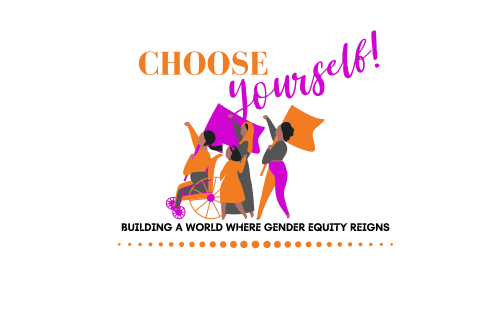Over the last month of January, our program Girl Talk Africa has been expanded to three more new countries in West Africa. Girl Talk Africa is a feminist movement-building program that offers safe space for diverse groups of women to humanize their experiences via the exchanges of ideas, reinforcing sisterhood and also through strategizing and organizing on how to create change within communities. Our program currently exists in six countries including Rwanda, Kenya, Zambia, Uganda, Burundi and DRC. However, during the previous month of January the program expanded to Nigeria, and to two french speaking countries of Benin and Ivory Coast.
We visited each of these three countries to meet, convene, connect with grassroots feminist organizations and feminist individuals/ activists through private workshops to hear and learn more about their work, understand what the feminist scene is like in their communities and therefore what kind of feminist dialogues are needed to compliment what’s already being done on ground.
To the core, Girl Talk works to complement and extend strength to feminist praxis by offering discourse in theory. Through these workshops Girl Talk provides a critical lens through which to understand and then work to ameliorate the concerns and struggles primarily faced by women. Feminist theories suggest frameworks for analyzing gendered roles and identities, addressing the challenges faced by individuals and communities who trangress traditional expectations including folkx under the LGBTQ+IA umbrella, sex workers and more. Additionally, through these workshops, Girl Talk is able to intersect, connect and partner with other social movements and organizations.
So as we organized for these new countries, we designed the workshops and our gatherings in ways that allowed us to hear from feminists from each of their respective communities to know what kind of discourse and conversations would Girl Talk focus on.
As we organized we heard stories from young feminists in the age brackets of 19 – 29 about their feminist journeys, their experiences as twitter/online feminists, we found that in some feminist spaces existed heavy intersections of classism, elitism, homophobia and others disclosed that neo-liberal feminism is winning hearts of many feminists so radicalizing thoughts and dialogues by Girl Talk was needed.
Lastly, as we organized and traveled to these new countries, it’s important to include how difficult and limiting it was during these coronavirus times. We were only able to meet with about 15-20 feminist individuals in each countries while respecting all the COVID restrictions and precautions. This limited our experiences to connect and collect data. One of the things that was uniformly expressed was how the pandemic had exposed so many injustices that have been existing. The world pre-COVID was unfair, unjust, organized to feed and fuel greed at the expense of marginalized groups and extremely oppressive. COVID somewhat exposed all the evils of institutions and capitalism. So as we continue to organize, we’re aligning to continue documenting and creating spaces to allow us to strategize for sustainable change post-COVID.
By Bonitah Kobusingye
Director Girl Talk Africa.

